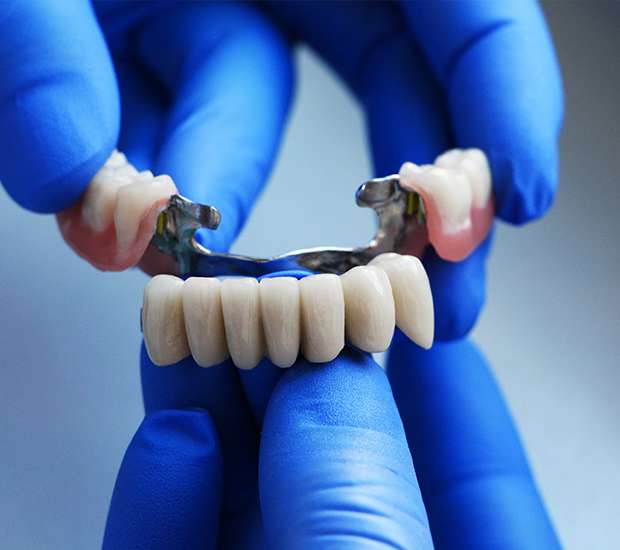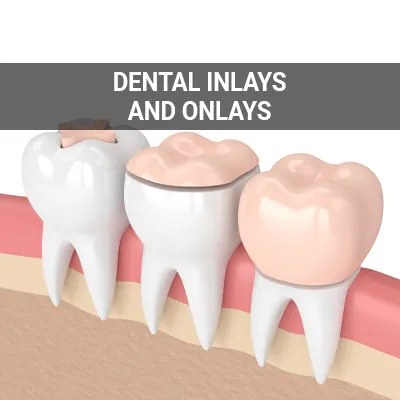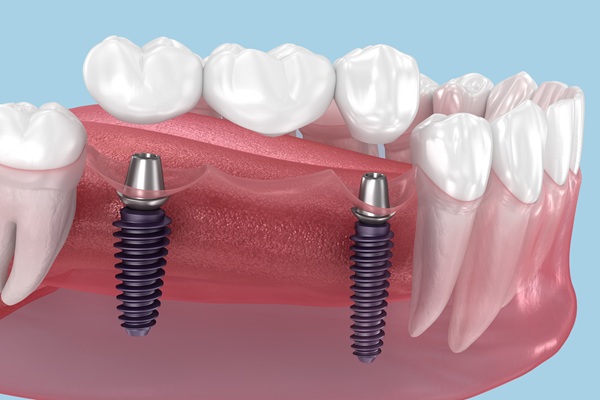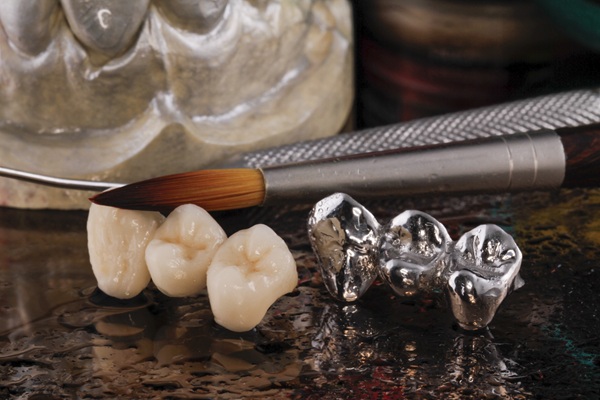Dental Bridges Federal Way, WA
A dental bridge is a tooth replacement option that consists of artificial teeth attached to a frame that can be fit onto a crown over abutting natural teeth or implants. Many patients may consider a dental bridge among other teeth replacement options. The right choice may come down to an option that offers comfort and a natural appearance, which is why many patients choose dental bridges.
At Smile Center Dental Care, we offer dental bridges to patients in Federal Way and the surrounding area. After a thorough evaluation and review of medical records, our dentist explains available teeth replacement options and makes recommendations for an optimal treatment plan. We work with top dental labs to create dental bridges that fit well and look good.
Replacing missing teeth is not just a cosmetic matter. It is essential to good overall health to have a full mouth of adequately functioning teeth. Call us at (253) 326-6230 to make an appointment and learn how our dentists can help.
Understanding What a Dental Bridge Can Do for You
A dental bridge is a partial set of replacement teeth, usually made from porcelain that looks and feels like natural teeth. There are several types of dental bridges, but most connect to the abutting natural teeth to hold them in place. This helps prevent the rotating and shifting that can be brought on by gaps in the mouth left by missing teeth. Bridge work is typically designed to be a permanent addition to the mouth and is not removable. Dental bridges require healthy surrounding teeth or implants to have enough bone support.
With proper care, dental bridges can last for close to ten years. Dentists recommend patients brush and least twice daily using a soft-bristled toothbrush. It is important to floss daily around the teeth and bridge and use an antiseptic mouth rinse. Your dentist may recommend a proxabrush to clean under your bridge. Patients who have bridgework are also advised to avoid tobacco products and hard sticky items like caramel.
“A dental bridge is a partial set of replacement teeth, usually made from porcelain that looks and feels like natural teeth.”
Caring for and Adjusting to Dental Bridges
WebMD stresses the importance of good oral hygiene for keeping a dental bridge in good condition. It is crucial that patients keep up the recommended routine of brushing, flossing, and using mouthwash. The dental team will demonstrate the right technique for flossing around the crowns and bridge to prevent bacteria from flourishing there. It is also essential to see a dentist as soon as possible upon noticing any problems with the bridge. This can stop minor issues from snowballing.
Patients may experience minor discomfort the first few days after the placement of a dental bridge as they adjust. We recommend eating softer foods and avoiding sugary and acidic foods and beverages to keep them in good condition during the adjustment period. Over time, patients will become accustomed to the bridge and can resume normal diet and activities, following a strict hygiene routine.
“Continue the recommended routine of brushing, flossing, and using mouthwash.”
Dental Bridge Types
There are four major types of dental bridges. Three of them use different mechanisms to attach to the abutting teeth. The fourth type connects to the jawbone via an implant.
- Traditional. A traditional bridge is a combination of one or more replacement teeth with crowns on either side. It is necessary to grind down the abutment teeth slightly. The crowns are placed over the natural teeth and cemented in place.
- Cantilever. This is similar to a traditional bridge but used when there is only a single abutment tooth. It uses a cantilever design to secure the bridge in place from a single point.
- Maryland. The Maryland dental bridge also connects to the adjacent teeth. However, it has a metal framework that bonds to the inside of the natural teeth with resin, avoiding the need for crowns on the abutment teeth.
- Implant-Supported. Some bridges are implant-supported. They connect directly to the jawbone with dental implants, small metal studs that replicate natural tooth roots. Typically, there is one implant placed per replacement tooth.
“There are four major types of dental bridges.”
Check out what others are saying about our dental services on Google: Dental Bridges in Federal Way, WA
Bridges v. Dentures
Although bridges and dentures both act as tooth replacements, there are some differences and similarities between the two. One of the main differences between a dental bridge and dentures is that bridges are a fixed appliance, whereas dentures can be either fixed or removable. Another difference is that fixed dentures require dental implants, while fixed bridges can be placed without implants.
Bridges and fixed dentures are similar in that they both look and feel like natural teeth. They both share the benefit of being strong, durable, and long-lasting. In most cases, patients are able to choose between the two. However, certain cases may require one or the other due to the patient's oral status or any dental conditions or complications.
“Bridges and fixed dentures are similar in that they both look and feel like natural teeth.”
Questions Answered on This Page
Q. What are the different types of dental bridges?
Q. What are the benefits of dental bridges?
Q. How does one maintain a dental bridge?
Q. What is the difference between a dental bridge and dentures?
People Also Ask
Q. What is involved in getting a fixed bridge?
Q. Who are the right candidates for teeth replacement?
Q. What is restorative dentistry?
The Benefits of Dental Bridges
Dental bridges can be an effective treatment for missing teeth. Our team recommends this option to patients who are candidates and want to restore the form and function of their mouths. These are a few of the benefits:
- Emulate Natural Teeth: The porcelain teeth on a dental bridge look, feel, and function like natural teeth. They are stable in the mouth. Therefore, they are similar to natural teeth when eating and speaking.
- Allow Brushing: Patients can clean dental bridges in the mouth, unlike with removable dentures, meaning they can brush and floss like normal. Maintaining this familiar process can make care more manageable.
- Provide Value: Compared to implants, dental bridges are less expensive. They may cost more than removable dentures. Many patients find that they provide a healthy balance between cost and effectiveness.
- Perform Effectively: Missing teeth may produce embarrassment and make speaking and eating more challenging. They may also slowly erode the jawbone over time. A dental bridge is an effective way to overcome these issues.
“Dental bridges can be an effective treatment for missing teeth.”
Frequently Asked Questions
Q. How is a dental bridge different from dentures?
A. Dentures require removal every day, while a bridge stays in the mouth permanently for the duration of its lifespan. On the one hand, bridges tend to offer a better fit and a more natural feeling. On the other hand, fitting the dentures does not require additional procedures such as a crown or implant placement.
Q. How long can I expect my dental bridge to last?
A. Dental bridges usually last between 10 and 15 years. Taking good care of the bridge and seeing a dentist on a regular basis can extend this period further.
Q. Is it normal to have tooth sensitivity after getting a dental bridge?
A. Tooth sensitivity is common after bridge placement. It usually goes away after a few weeks. In the meantime, it can help to avoid very hot or cold foods. The American Dental Association also recommends limiting acids, which can be in some types of mouthwash. Ask a dentist about alternative products.
Q. When do I need to see a dentist about problems with my dental bridge?
A. Some discomfort immediately after placement is usually normal; however, contact a dentist if pain or sensitivity persists or worsens. Damage to the bridge or crowns also needs prompt, professional attention.
Q. Why does my dental bridge keep coming loose?
A. If a dental bridge keeps loosening or falling out, the most common reason is decay in the supporting teeth. Other causes could include gum disease. Whatever the reason, a loose bridge is an important reason to call our office right away.
Dental Terminology
Helpful Related Links
- American Dental Association (ADA). Glossary of Dental Clinical Terms. 2024
- American Academy of Cosmetic Dentistry® (AACD). Home Page. 2024
- WebMD. WebMD’s Oral Care Guide. 2024
About our business and website security
- Smile Center Dental Care was established in 2005.
- We accept the following payment methods: American Express, Cash, Check, Discover, MasterCard, and Visa
- We serve patients from the following counties: King County and Pierce County
- We serve patients from the following cities: Federal Way, Auburn, Kent, Des Moines, Tacoma, Fife, Milton, Edgewood, SeaTac, and Algona
- National Provider Identifier Database (1770035289). View NPI Registry Information
- Norton Safe Web. View Details
- Trend Micro Site Safety Center. View Details
Back to top of Dental Bridges











